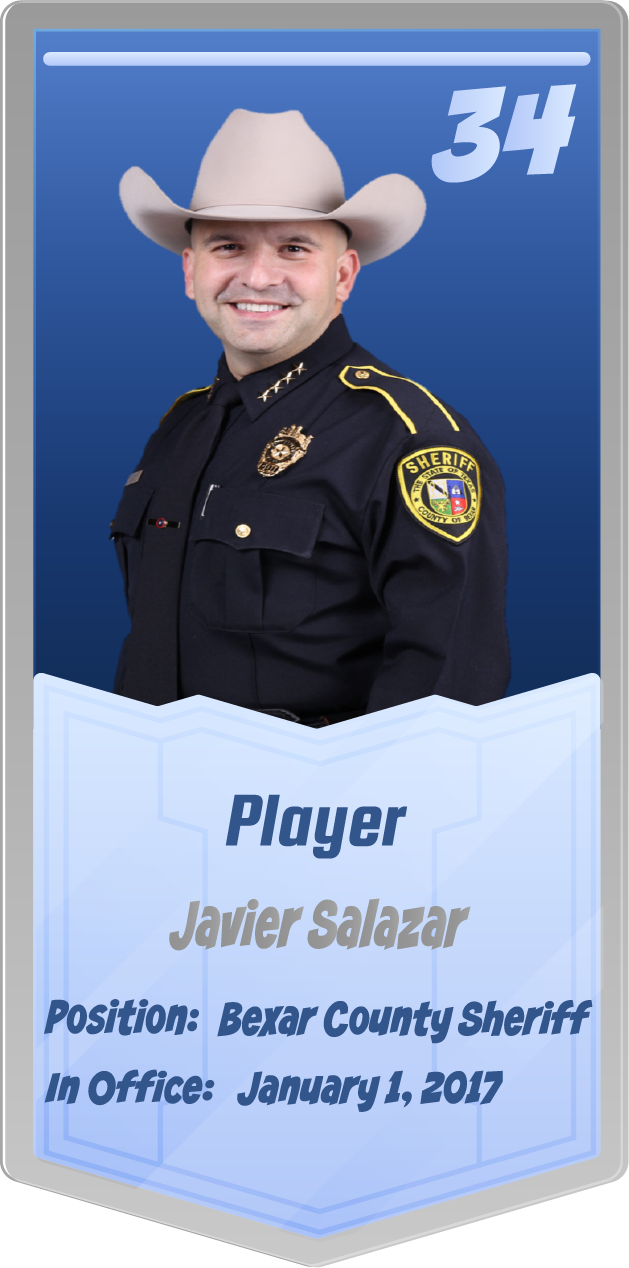
Justice Lori Massey Brissette,candidate, 4th Court of Appeals, Place 4.
WTVSA Question & Answer Interview

1.
What inspired you to run for the Place 4 seat on the 4th Court of Appeals, and why did you choose to pursue this position instead of seeking re-election to your current Place 3 seat?
I did not have a choice to run for Place 3. I decided to run in Place 4 in December of 2023. In June of 2024, I was contacted about a need to fill the last six months of the term left by Justice Patricia Alvarez when she retired. But, by then we were too far in the election process for me to switch my candidacy. So, my race continues in Place 4.
I chose to run in Place 4 because I wanted to have as big of an impact as possible to address the dysfunction and productivity issues on the court.
I chose to run in Place 4 because I wanted to have as big of an impact as possible to address the dysfunction and productivity issues on the court.

2.
How has your experience being appointed to the 4th Court of Appeals shaped your perspective on judicial service and influenced your decision to run for a different place on the court?
As stated above, I didn’t have a choice to run for Place 3. But, serving on the court has given me an opportunity to see first hand the issues impacting the court and to start understanding why we’ve gone from being the most efficient and effective court in the state to the bottom of the state court of appeals rankings. And, it has given me hope that things can change. It’s not rocket science. It will simply take judges who are willing to show up to work alongside their colleagues, setting aside their own personal feelings and needs to honor the court, their oath of office, and the relationships they need to build in order to get the job done. We have several judges already doing that.

3.
Can you share how your diverse legal background—from serving as a district judge to founding your own firm—has prepared you for the responsibilities of the appellate court?
I am uniquely qualified for this role. First, I have the legal experience, as a 30+ year attorney, a former briefing attorney for the Texas Supreme Court, a former district judge, a former board certified civil appellate lawyer and having been named as a top litigator by Texas Monthly magazine several times. But, this is also an organization that, from the perspective of the data and the public perception, has been underperforming.
I have something most attorneys don’t. That is experience as a turnaround expert in the corporate world. I understand what it takes - to start with data and look across people, process and technology - to understand the factors leading to the issues and to find solutions to improve performance. I also understand that the work environment and the relationships you choose to build are critical to moving any organization in a positive direction.
I have something most attorneys don’t. That is experience as a turnaround expert in the corporate world. I understand what it takes - to start with data and look across people, process and technology - to understand the factors leading to the issues and to find solutions to improve performance. I also understand that the work environment and the relationships you choose to build are critical to moving any organization in a positive direction.

4.
Your family faced a devastating loss last year. How has this personal experience impacted your perspective on the justice system and your role within it?
It definitely woke me up! Watching the wheels of justice barely move, you could say even go off track, made me ask more questions about what is happening at the courthouse. That inquiry led me to understand that there is a sense of apathy among attorneys, that they have lost confidence that things will ever be what they were. But, I’ve always been someone who runs toward problems that others shy away from. And, I’m not someone to give up on what needs to be done. I’m willing to say what needs to be said and do what needs to be done to improve the system because I cherish it and believe in it.
I am even more committed because I know, personally, the impact it can have on people’s lives. Many people have asked me how I can do this in light of my son’s death. But, I choose to allow his death to give me purpose and to make me stronger in my desire for impact.
I am even more committed because I know, personally, the impact it can have on people’s lives. Many people have asked me how I can do this in light of my son’s death. But, I choose to allow his death to give me purpose and to make me stronger in my desire for impact.

5.
With over 30 jury trials and board certification in civil appellate law, how does your extensive courtroom experience enhance your ability to navigate complex cases at the appellate level?
It definitely helps. They say you practice law because nobody ever knows all of the answers. You learn how to ask the right questions and spot the right issues. But, having that background helps me understand where to look and helps me see issues others who don’t understand the law or practice as well can’t.
My experience also gives me a healthy respect for the jury system as I know how seriously juries take their jobs. And, I understand the pressures the attorneys are under in the trial court as they create the record for appeal. Finally, I understand the role of the trial judge and I can see, very easily, when they have gone beyond the limits of their role.
My experience also gives me a healthy respect for the jury system as I know how seriously juries take their jobs. And, I understand the pressures the attorneys are under in the trial court as they create the record for appeal. Finally, I understand the role of the trial judge and I can see, very easily, when they have gone beyond the limits of their role.

6.
Having served as a briefing attorney for the Texas Supreme Court and with experience in drafting legislation, how do you believe this enhances your interpretation of the law on the appellate bench?
My experience as a briefing attorney allows me to understand how an appellate court is supposed to work as a collegial body. It also gives me the perspective of an appellate judge, which is very different than a trial judge. As a trial judge, I was concerned about the outcome in that one case. As an appellate judge, I am concerned about the precedent I establish by ruling in one case and having that ruling apply in situations I can’t even foresee.

7.
You've received numerous honors from community organizations. How do you plan to continue engaging with the community and bringing those insights into your work as a justice?
I believe it is imperative that judges engage with the community. We have waning public confidence in the judiciary. They need to know who we are, so they can have confidence in how we will wield the power that we have as judges. But, they also need to know we care.
I learned early on, as a trial judge, that judges need to be leaders - in the courthouse and in the community. When I moved four blocks from my law firm office to get sworn in as a judge, more than my job changed. My perspective did, because I - all of a sudden - had a window into the kinds of issues impacting our community. Anyone who can do this job and stay hidden in the ivory tower of the courthouse isn’t fully filling the shoes of the judiciary in terms of their public role.
My experience also gives me a healthy respect for the jury system as I know how seriously juries take their jobs. And, I understand the pressures the attorneys are under in the trial court as they create the record for appeal. Finally, I understand the role of the trial judge and I can see, very easily, when they have gone beyond the limits of their role.
I learned early on, as a trial judge, that judges need to be leaders - in the courthouse and in the community. When I moved four blocks from my law firm office to get sworn in as a judge, more than my job changed. My perspective did, because I - all of a sudden - had a window into the kinds of issues impacting our community. Anyone who can do this job and stay hidden in the ivory tower of the courthouse isn’t fully filling the shoes of the judiciary in terms of their public role.
My experience also gives me a healthy respect for the jury system as I know how seriously juries take their jobs. And, I understand the pressures the attorneys are under in the trial court as they create the record for appeal. Finally, I understand the role of the trial judge and I can see, very easily, when they have gone beyond the limits of their role.

8.
How have you managed to balance your demanding career in law with personal challenges and community involvement, and what strategies do you use to maintain this balance?
Right now, there isn’t much balance in my life! With the full time job and campaigning, my family isn’t getting very much of me. But, it’s for a short time and for a good cause and they understand that. But, generally outside of this election bubble, I try to focus on what brings me joy. Walking on the riverwalk in the morning, having coffee with my husband, playing with my grandson, reading a good book, taking a well deserved afternoon nap on a Sunday, and meditating to stay in touch with that part of me I know is connected to everything around me - that’s what is important.

9.
What specific changes or initiatives would you like to introduce to the 4th Court of Appeals to improve its effectiveness and better serve the public?
I always start with data. It doesn’t tell you the full story, but it tells you where to start. Today, our data shows that we are issuing 150 fewer opinions a year than our average pre-pandemic performance. That tells me we need to identify what has changed between today and pre-pandemic and then determine which of those changes has impacted our efficiency. I believe process changes (or a return to old rules that changed during the pandemic) may be called for.
But, just from my experience with the court I know this: We need our judges to be in the courthouse together at least a few days a week so that they can spend time together, build relationships with each other, and have more opportunities for face-to-face engagement to foster healthy intellectual debate and challenge. That will also start to improve the work environment for staff. We need to ensure all chambers and clerk vacancies are filled and we need to spread best practices across chambers to ensure we are as effective as we can be.
I also believe we need to start granting more oral arguments, so that the public can see us doing our jobs in a more visible way and we need to start reporting our data to the bar association so people know we are holding ourselves accountable to the public.
But, just from my experience with the court I know this: We need our judges to be in the courthouse together at least a few days a week so that they can spend time together, build relationships with each other, and have more opportunities for face-to-face engagement to foster healthy intellectual debate and challenge. That will also start to improve the work environment for staff. We need to ensure all chambers and clerk vacancies are filled and we need to spread best practices across chambers to ensure we are as effective as we can be.
I also believe we need to start granting more oral arguments, so that the public can see us doing our jobs in a more visible way and we need to start reporting our data to the bar association so people know we are holding ourselves accountable to the public.

10.
How do you plan to enhance public trust in the judicial system, particularly within the appellate courts?
I have been talking with legislators and have been endorsed by the Texans for Judicial Accountability because I believe we need greater transparency and accountability for judges. In order to introduce merit into elections, we need a scorecard with basic information about a judge’s performance for voters. We need to ensure our Judicial Conduct Commission is staffed appropriately to conduct timely and thorough investigations into complaints and we need to take action when a judge is clearly choosing to violate their oath of office.
In order to introduce merit into elections, we need a scorecard with basic information about a judge’s performance for voters.
Justice Lori Massey Brissette



